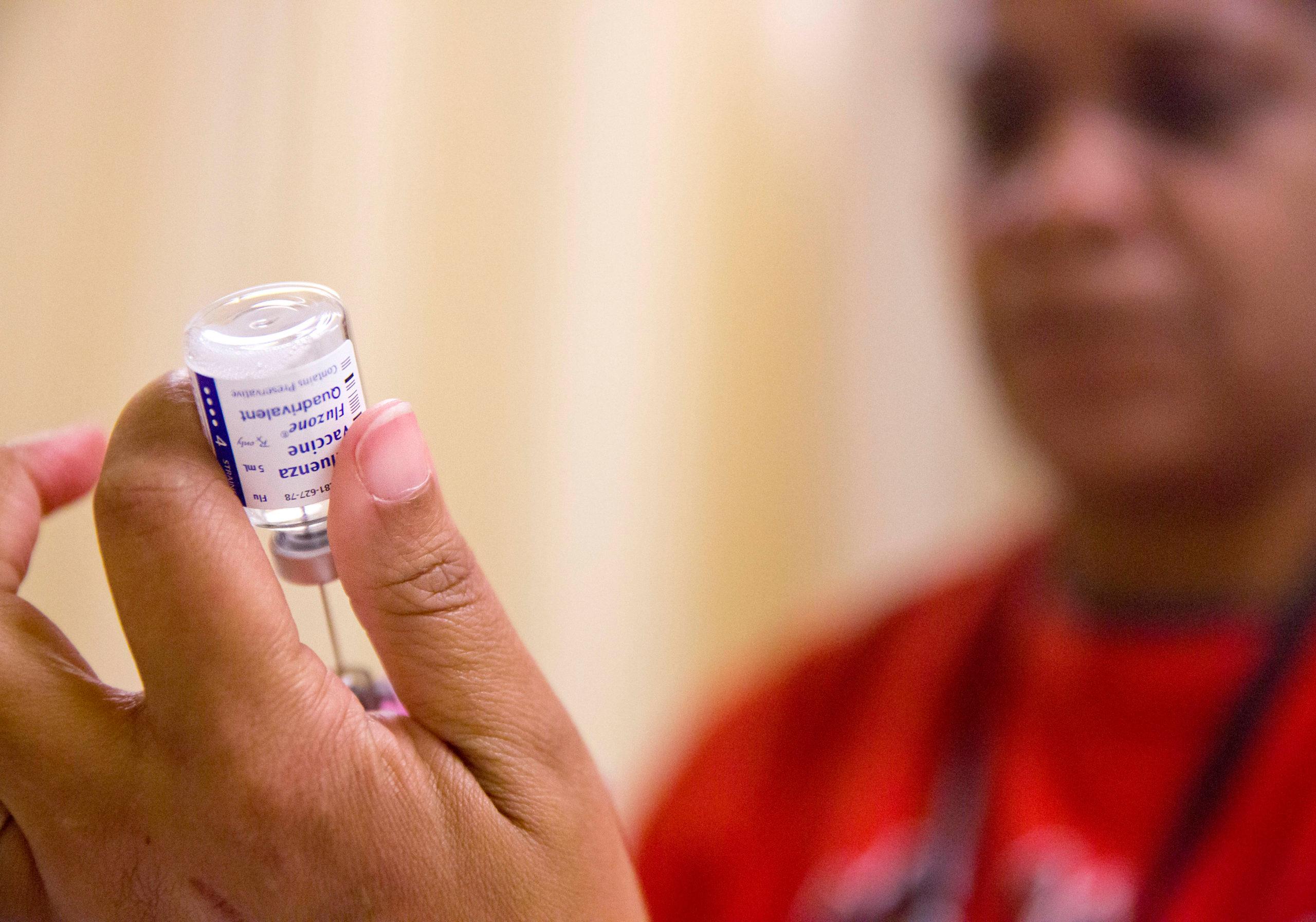
It used to be that health care workers in Colorado weren’t required to get the flu vaccine and a lot didn’t. Then, in 2009, the H1N1 flu — also known as Swine Flu — arrived with a vengeance and people started getting scared.
That’s when Colorado became one of the early states to begin pushing for rules requiring health care workers get flu vaccines. In 2012, the state adopted new regulations that required licensed health care facilities to ensure that health care workers received an annual influenza vaccine. The rules required that 90 percent of workers be vaccinated but allowed exemptions for health reasons and left room for religious and other personal exemptions. Those who opted out had to wear a masks.
And in general, the rules have been a success, according to Dr. Matt Wynia, the Director of the Center for Bioethics and Humanities the University of Colorado’s Anschutz Medical Campus and an early supporter of the state regulations.
“They found it to be extremely successful when you just tell people, 'Look you gotta do this,' then people do it,” Wynia said.
But a 2017-2018 report shows only 60 percent of licensed health care facilities reported the numbers of workers vaccinated. And of those that reported, only 65 percent percent were in compliance with the vaccination requirements. In particular, organizations with workers who tend to treat older adults, like home health care groups and assisted living facilities are less likely to report the number of health workers who have received vaccinations, and for the ones that do, they're more likely to report numbers far below the 90 percent requirement for vaccinated workers.
“That suggests that there probably is some need for increased enforcement of the requirement to find out what's happening in [these facilities,]” Wynia said. “It may be time for policymakers to do some investigation and find out what is it that's the barrier.”
New rules from the Colorado Department of Public Health and Environment go into effect today. Officials said they now make it clear that all facilities must follow the vaccine requirements for health care workers. It says it inspects organizations and implements a “corrective process” for those that aren’t in compliance. It’s unclear whether any of the facilities that aren’t in compliance have been investigated.
As for this year’s flu season, it’s expected to be a bad one nationally. But in Colorado, experts like state epidemiologist Dr. Rachel Herlihy have said it’s a pretty typical season — with one exception.
“What is unusual about this flu season is the type of influenza,” Herlihy said. “Normally we would be seeing influenza A viruses, but instead we're seeing influenza B."
Herlihy said influenza B usually comes later in the season and it tends to affect children more.
This story was updated on 1/14/2019.









